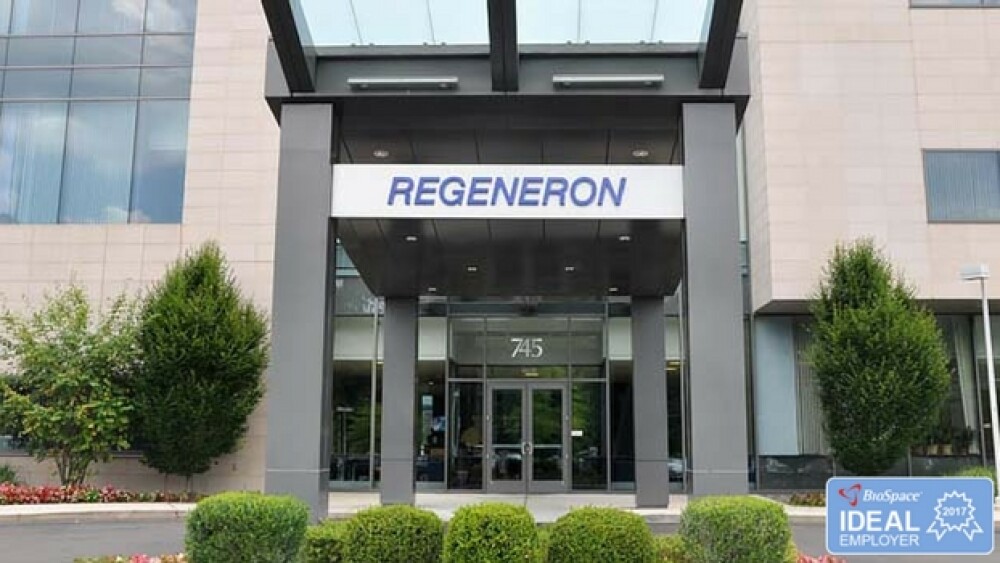Shares of Regeneron are down following reports of increased observations of known side effects from blockbuster drug Eylea were reported by providing doctors.
Shares of Regeneron Pharmaceuticals, Inc. fell slightly in after-hours trading Wednesday following reports of increased observations of known side effects from blockbuster drug Eylea were reported by providing doctors.
A small number of patients who have had Eylea injected into their eye for indications like age-related macular degeneration (AMD) have experienced a “sharp decline in sight” and increased pain, Bloomberg reported Wednesday. The side effects are only temporary and can be treated, but a professional society of eye physicians, the American Society of Retina Specialists, has issued warnings to its members to watch out for the condition, Bloomberg said. In several letters to members, the society urged doctors to be on the lookout for side effects. However, the doctors also noted that the benefits of Eylea outweigh the risks of the side effects, Bloomberg reported.
Regeneron is well-aware of the reports and is “closely monitoring” the situation, Bloomberg said. Shares of Tarrytown, N.Y. fell a little less than 2 percent on Wednesday. Over the past six months, shares have fallen about 30 percent. A company spokesperson told Bloomberg that in the past “occasional clusters of cases” that were linked to inflammation have been reported to the company. Citing the U.S. Food and Drug Administration Bloomberg said that in 2017 the regulatory agency received reports of 71 cases of the side effect – which is triple the number from 2014. In contrast, Regeneron said it sold 2.2 million vials of Eylea, which is more than double what was sold in 2014, Bloomberg said. That’s about one in 10,000 people on Eylea who come down with the side effects. Bloomberg noted that number is less than what Regeneron saw during clinical trials before Eylea was approved by the FDA.
James Dunn, a Philadelphia-based eye surgeon, told Bloomberg that the majority of side effects cases reported come from patients who have had previous injections of the drug.
As of now, there is only speculation why there is a rise in the number of side effects having been reported. After examining the cases Bloomberg said there does not appear to be any evidence of a manufacturing issue on Regeneron’s end. A Johns Hopkins ophthalmology professor suggested that the side effects could be associated with a mishandling of the drug, which requires constant refrigeration.
Regeneron has not issued a recall but Bloomberg said the company will allow doctors who have discovered a patient with the side effect to switch out batches of the medicine they have with new batches.
While the side effects for Eylea have been disclosed Regeneron is facing another issue associated with its blockbuster drug. Analysts at Canaccord Genuity have downgraded Regeneron stock to a hold due to the company saying it will no longer provide guidance for Eylea as of the first quarter of 2018. Canaccord said that was expected but called it concerning. At the same time, Canaccord reminded clients that Regeneron cannot increase the price of Eylea due to off-label competition from Genentech’s cancer drug Avastin.
Analyst John Newman said Eylea will be facing competition from Roche in treating diabetic macular edema and from Novartis’ brolucizumab in Wet AMD. Newman cut the price target for Regeneron stock from $522 to $356, a cut of 32 percent.
“Novartis’ brolucizumab and Roche’s RG7716 may offer some competition to Eylea beginning 2019/2020, despite showing interesting but difficult to interpret data in wet AMD and DME, resulting in some level of lingering investor concern,” Canaccord said in its note.





